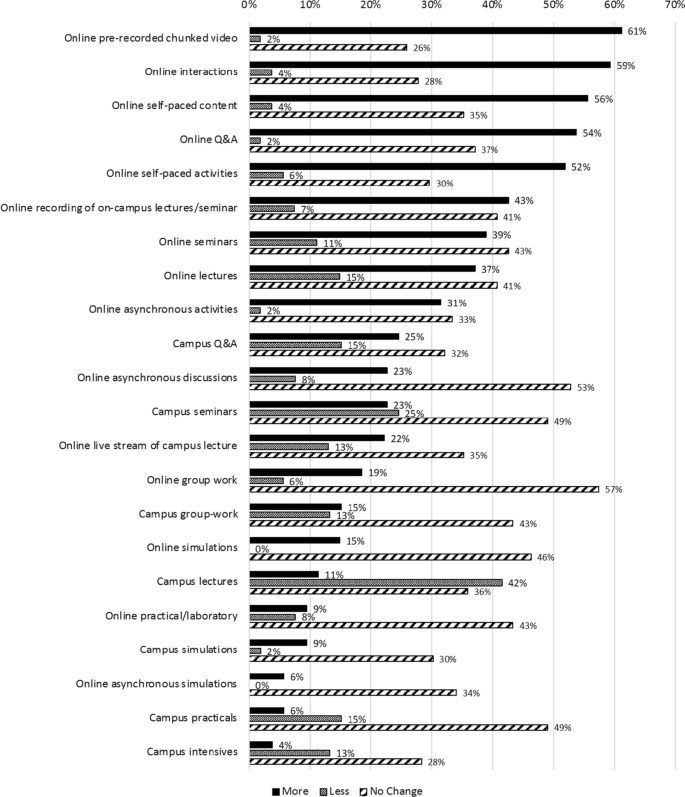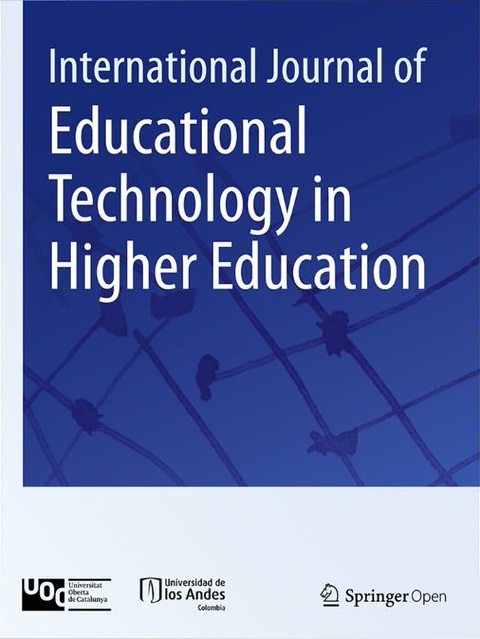除了紧急远程教学:大流行是否导致了大学课程的持久变化?
IF 16.7
1区 教育学
Q1 EDUCATION & EDUCATIONAL RESEARCH
International Journal of Educational Technology in Higher Education
Pub Date : 2023-11-13
DOI:10.1186/s41239-023-00428-z
引用次数: 0
摘要
新冠肺炎疫情严重破坏了传统的高等教育教学方式。但大流行过去后还剩下什么呢?虽然大多数文献探讨了大流行期间的变化,并对大流行后的未来进行了许多猜测,但对持久影响的清晰理解仍然难以捉摸。为了阐明这一知识差距,我们的研究对比了从大流行前一年(2019年)到大流行后阶段(2022/2023年)的匹配课程的教学实践。我们还调查了影响这些变化的因素以及学术界对这些变化的看法。数据通过混合方法从澳大利亚一所大型综合性大学的不同学科的学者中收集,收集了67份调查回复,进行了21次访谈。调查结果表明,大流行后,在线学习活动、真实和框架评估以及在线无监督考试显著增加。这些变化主要是由大学引导的适应、时间和工作量压力、持续的COVID-19挑战、地方领导、个人创新的愿望以及对学术诚信的关注所驱动的。虽然学术界认为大多数变化是有利的,但对在线考试的看法却不那么积极。这些发现阐明了大流行对高等教育的持久影响,表明了比以往在大流行急性阶段进行的研究更长期的影响。本文章由计算机程序翻译,如有差异,请以英文原文为准。

Beyond emergency remote teaching: did the pandemic lead to lasting change in university courses?
Abstract The COVID-19 pandemic significantly disrupted traditional methods of teaching and learning within higher education. But what remained when the pandemic passed? While the majority of the literature explores the shifts during the pandemic, with much speculation about post-pandemic futures, a clear understanding of lasting implications remains elusive. To illuminate this knowledge gap, our study contrasts pedagogical practices in matched courses from the pre-pandemic year (2019) to the post-pandemic phase (2022/2023). We also investigate the factors influencing these changes and the perceptions of academics on these shifts. Data were gathered from academics in a large comprehensive Australian university of varying disciplines through a mixed-methods approach, collecting 67 survey responses and conducting 21 interviews. Findings indicate a notable increase in online learning activities, authentic and scaffolded assessments, and online unsupervised exams post-pandemic. These changes were primarily driven by university-guided adaptations, time and workload pressures, continued COVID-19 challenges, local leadership, an individual desire to innovate, and concerns about academic integrity. While most changes were seen as favourable by academics, perceptions were less positive concerning online examinations. These findings illuminate the enduring effects of the pandemic on higher education, suggesting longer-term implications than previous studies conducted during the acute phase of the pandemic.
求助全文
通过发布文献求助,成功后即可免费获取论文全文。
去求助
来源期刊
CiteScore
19.30
自引率
4.70%
发文量
59
审稿时长
76.7 days
期刊介绍:
This journal seeks to foster the sharing of critical scholarly works and information exchange across diverse cultural perspectives in the fields of technology-enhanced and digital learning in higher education. It aims to advance scientific knowledge on the human and personal aspects of technology use in higher education, while keeping readers informed about the latest developments in applying digital technologies to learning, training, research, and management.

 求助内容:
求助内容: 应助结果提醒方式:
应助结果提醒方式:


